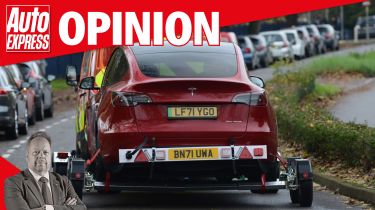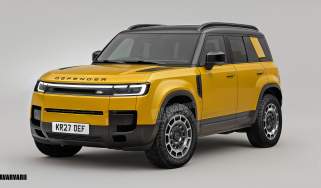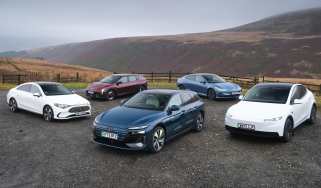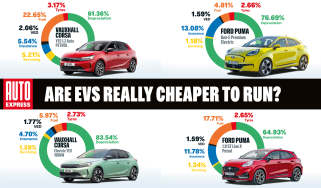“Electric cars must not become pawns in a divisive culture war”
Andy Palmer sees the incorrect reporting of the Luton Airport fire as yet more evidence of the politically charged debate around electric vehicles

Those of us who have been in and around the automotive industry for long enough have witnessed the evolution of cars from mere means of getting from A to B, to symbols of innovation, status, and, more recently, pawns on a political chessboard.
The transition towards electric vehicles marks a significant development, not just technologically, but socio-politically too. The recent fire in a car park at Luton Airport, which was widely attributed as starting in an electric vehicle without any solid proof or evidence, is a prime example of the dangerous misinformation that underpins the political dialogue surrounding EVs. It was later reported by a number of media outlets that the fire was, in fact, caused by a diesel vehicle.
Despite that, the 'electric vehicle fire' narrative quickly became a trending topic in the public debate surrounding the adoption of EVs, with EV sceptics using it as an example of the 'dangers' posed by these vehicles. X, once known as Twitter, was pulsing with speculation that the fire had started from an electric vehicle, with some users pointing to previous, unrelated, fires associated with EVs as apparent evidence of this.
However, when it later emerged that the fire was not caused by an electric vehicle, the correction was less reported and did not receive the same level of public attention as the initial incorrect report.
As it does, Twitter’s attention turned to other events - but not before the seed that the fire had been started by an electric vehicle had firmly been planted in the minds of many.
Why does this matter? Because the EV landscape is not just a faction of the automotive industry but also a political one, peppered with competing interests, investments, and ideologies. Not least, we can look at Rishi Sunak recently U-turning on the decision to ban the sale of internal combustion engines by 2030 as a prime example of how politically-charged the automotive industry has become.
The misinformation that surrounded the Luton Airport incident is symptomatic of a larger trend - the weaponisation of electric vehicles in political and ideological battles.
Geopolitically, the push for electric vehicles affects oil-rich nations, potentially shifting power balances by reducing oil dependency. Domestically, the transition impacts legacy automakers, energy providers, and even the workforce, with significant re-skilling needs and job shifts. Naturally, this creates competing vested interests for various groups in either slowing down or accelerating this transition.
EVs aren’t alone in this concern. Since time began, new technologies have been subject to fearmongering and scepticism from those who prefer the status quo. Indeed, when the very first engine-powered automobiles were launched in the US, concerns were raised about the increase in speed compared to horse-drawn carriages, with some even suggesting that “high speed” (by standards of the day) could cause various internal health issues due to the unprecedented velocity.
What’s different today is that the narrative around electric vehicles has become a proxy to reflect the wider political divide on issues such as climate change, economics and the role of the state in our lives.
For those of us who have been around the industry for some time, our role should not just be about building and promoting EVs. We need to ensure accurate, objective information is communicated to the public and policymakers. We must advocate for decisions to be based on scientific evidence and real-world data, not on sensationalism or political ideology.
Electric vehicles have, for better or worse, become political pawns in a much larger game. And despite the potential of alternatives such as hydrogen and e-fuels, they are also leading the way in a necessary and inevitable shift toward sustainable transportation. As custodians of this industry, we have a role to play in steering the conversation away from political point-scoring and towards informed, constructive debate and decision-making.
Do you agree with Andy Palmer? Let us know your thoughts on electric cars in the comments section...




